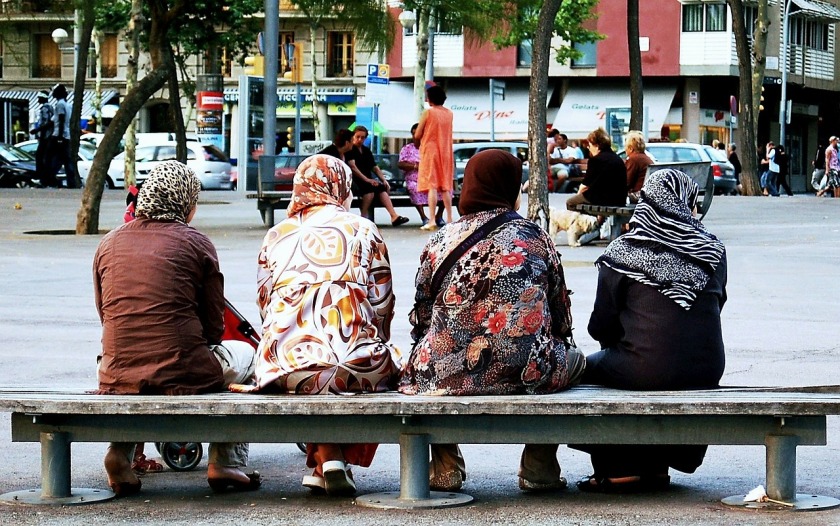Just then a lawyer stood up to test Jesus. “Teacher,” he said, “what must I do to inherit eternal life?” He said to him, “What is written in the law? What do you read there?” He answered, “You shall love the Lord your God with all your heart, and with all your soul, and with all your strength, and with all your mind; and your neighbor as yourself.” And he said to him, “You have given the right answer; do this, and you will live.”
But wanting to justify himself, he asked Jesus, “And who is my neighbor?” Jesus replied, “A man was going down from Jerusalem to Jericho, and fell into the hands of robbers, who stripped him, beat him, and went away, leaving him half dead. Now by chance a priest was going down that road; and when he saw him, he passed by on the other side. So likewise a Levite, when he came to the place and saw him, passed by on the other side. But a Samaritan while traveling came near him; and when he saw him, he was moved with pity. He went to him and bandaged his wounds, having poured oil and wine on them. Then he put him on his own animal, brought him to an inn, and took care of him. The next day he took out two denarii, gave them to the innkeeper, and said, ‘Take care of him; and when I come back, I will repay you whatever more you spend.’ Which of these three, do you think, was a neighbor to the man who fell into the hands of the robbers?” He said, “The one who showed him mercy.” Jesus said to him, “Go and do likewise.”
– Luke 10:25-37
One of the most fiendish aspects of the Babylon mindset is that, even as we live in an age of unparalleled material comfort and security, we are maintained in a near-constant state of fear and anxiety.
This serves the interests of political parties and corporations very well, of course. The easiest way to get your vote is to, first, convince you that you and your family are in imminent danger and, second, to convince you that the only way to find safety is to vote for this or that party. The easiest way to sell you something is to create in you a sense of desire or inadequacy, then convince you that my product or, better still, my brand can help you reach that desire or soothe that sense of inadequacy. The easiest way to turn an employee into a virtual slave is to convince him that if he loses his employment with the company, he will lose everything he has.
These pressures – on our identity as voters, consumers, workers – and the sense of fear and hurry they create can make it very difficult to connect in any meaningful way with those around us. For one thing, it is hard to find the time, as we rush between work and the supermarket and the children’s lessons and the myriad other engagements that fill our days. For another, we may be afraid to reach out, perhaps because our neighbors are of a different race or class or political party. Perhaps we worry about gossip and intrusion or even theft. Like the priest and the Levite, we are more concerned with our own purity, our own pride, our own comfort, than with loving those around us.
However, our inability to engage our neighbors only feeds into a cycle of “contact without fellowship” and the potential for suspicion and even hatred that such contact engenders. Our neighbors become the villains in a drama half-concealed, known only by their barking dog or loud arguments or late-night vacuuming. More seriously, our refusal to stretch ourselves beyond our comfort level to love those around us puts us in direct opposition to Christ’s command to love our neighbors as ourselves. We are his friends if we do what he commands; when we deliberately turn from his simple commands, we lose the right to claim his friendship. So when we say that we are too busy or introverted or temperamentally unsuited to love those we come in contact with, in our neighborhoods, at our workplaces, on social media, we show ourselves to be the enemies, not the friends, of Jesus.
This can be a challenge, pulled as we are in so many directions at once, and I have certainly been – and continue to be – guilty of making excuses for my own indifference to those around me. But as I am realizing that reminding myself of Jesus’ love for my neighbors makes it much easier to love them myself, I am trying to make an effort to look for ways to serve others, for example by offering my seat on the bus or texting someone I know is having a tough time or bringing over goodies to a busy mom down the street. The more I do this, the easier it becomes.
As we show the simple love of conscious neighboring, we strike a blow against a system that insists that we don’t have time to waste on others and that we are too strapped to share out of what we have. We strike a blow against a system that encourages us to see people only through the lens of what they can do for us. Most importantly, we show ourselves to be true disciples of Jesus Christ, who not only hear his command to love but actually trust in him and his authority enough to do it.
With our tight schedules and tighter budgets, this may feel like a stretch, but can friends of Jesus do otherwise?

Reblogged this on Ecumenics and Quakers.
LikeLike
Pingback: The Word is Love | In the Shadow of Babylon